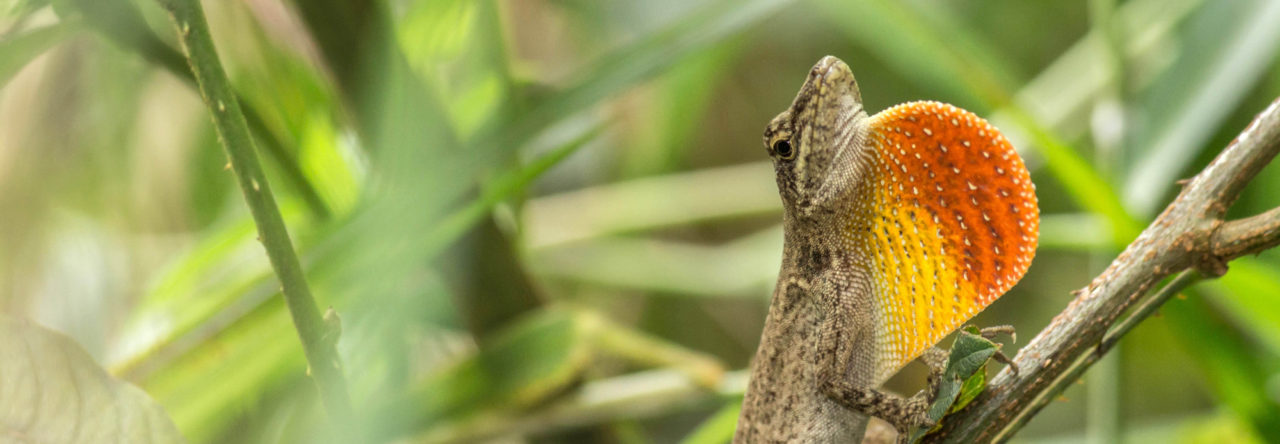
A female green anole from Hahajima in the Osagawara Islands.
We’ve had a series of posts about the anoles of the Osagawara Islands, of Japan, the “Galápagos of the Orient” [1, 2]. Now a new paper (pdf here) from Masakado Kawata’s lab has resequenced genomes of multiple individuals and measured morphology to assess how large the founding population was and what sorts of morphological changes have occurred since colonization, as well as identifying some genes potentially under selection.
Here’s the abstract:
Invaded species often can rapidly expand and establish in novel environments through adaptive evolution, resulting in devastating effects on native communities. However, it is unclear if genetic variation at whole-genomic levels is actually reduced in the introduced populations and which genetic changes have occurred responding to adaptation to new environments. In the 1960s, Anolis carolinensis was introduced onto one of the Ogasawara Islands, Japan, and subsequently expanded its range rapidly throughout two of the islands. Morphological comparison showed that lower hindlimb length in the introduced populations tended to be longer than those in its native Florida populations. Using re-sequenced whole genomic data, we estimated that the effective population size at the time of introduction was actually small (less than 50). We also inferred putative genomic regions subject to natural selection after this introduction event using SweeD and a method based on Tajima’s D, π and FST. Five candidate genes that were potentially subject to selection were estimated by both methods.The results suggest that there were standing variations that could potentially contribute to adaptation to nonnative environments despite the founder population being small.
- Evolution in Real Time on Lizard Island - March 23, 2025
- Spider Snags Adult Anolis osa - March 22, 2025
- An Homage to the Green Anoles of New Orleans - March 21, 2025



Skip Lazell
Now, if we only knew WHY a longer lower leg was beneficial…. Skip